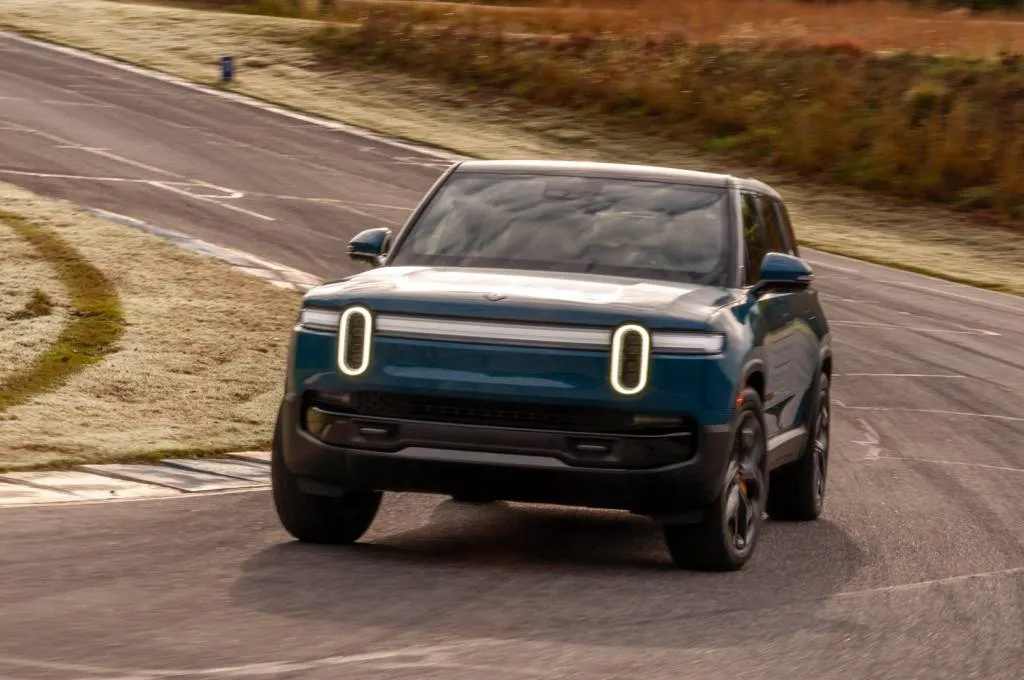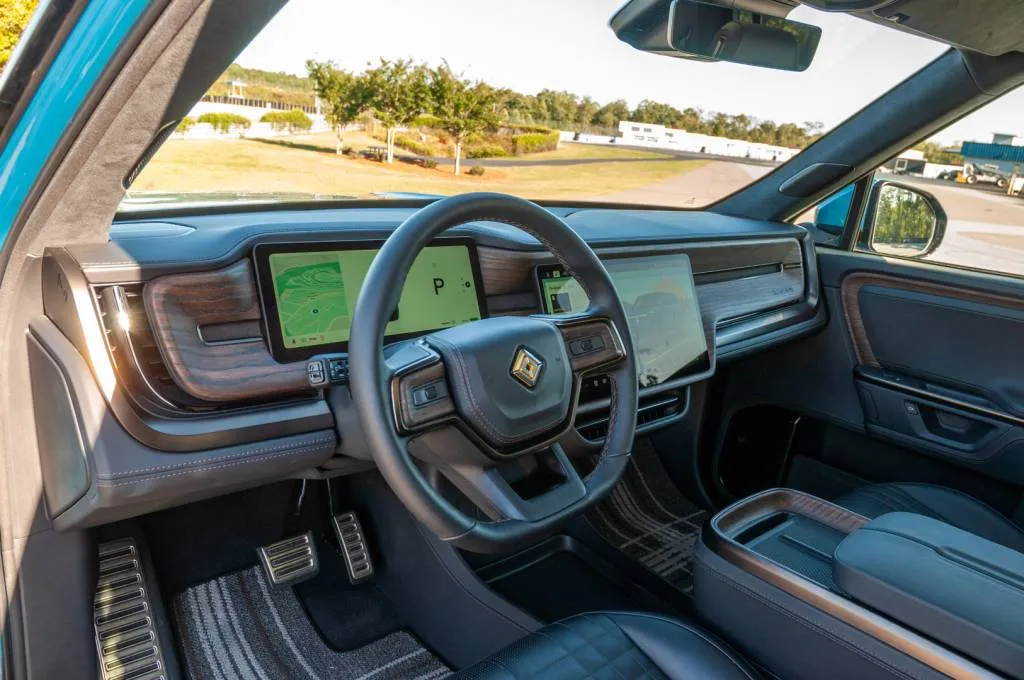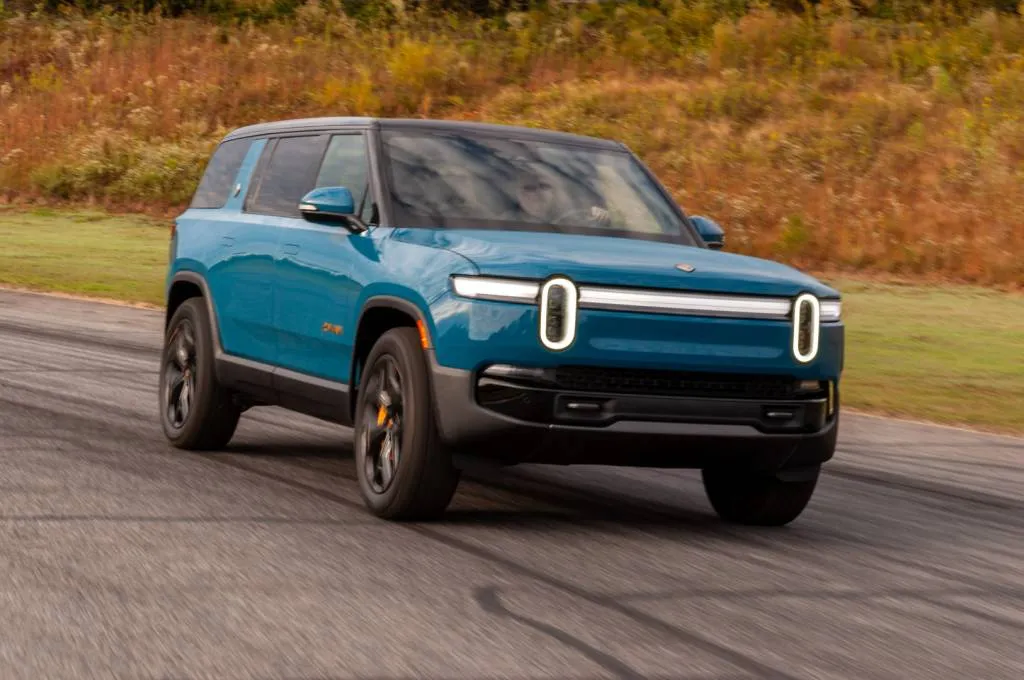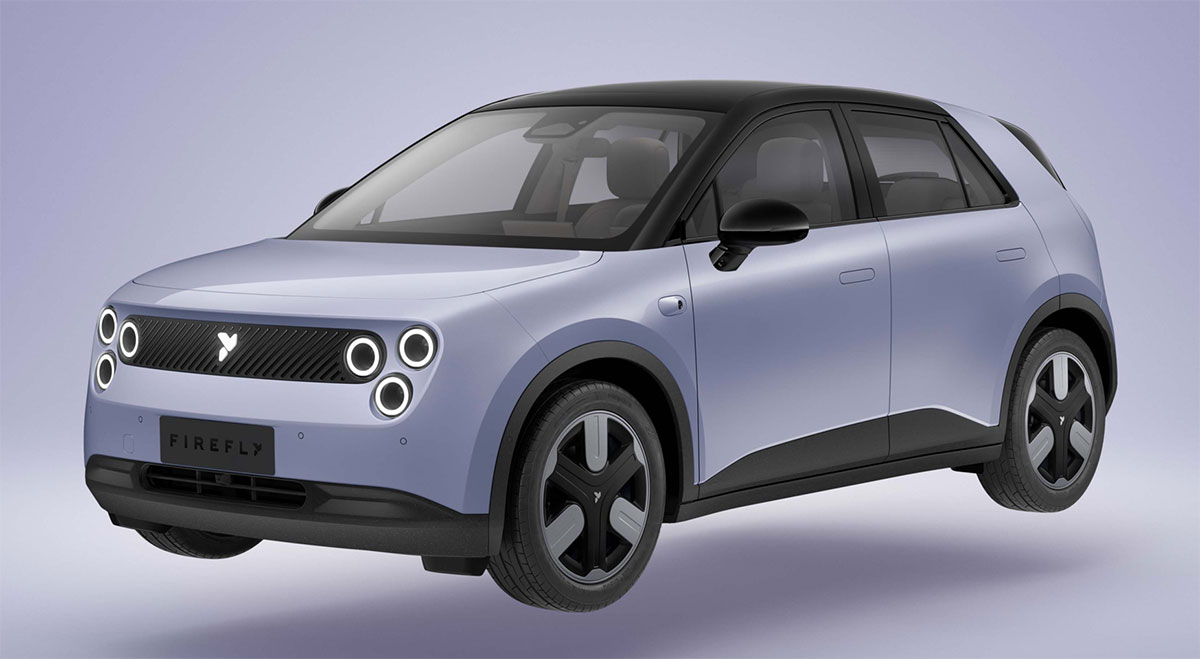-
The Rivian R1S doesn’t look new, but what you can’t see has been replaced or updated
-
Faster and more efficient, the R1S still sets a benchmark
-
Benchmarks cost a lot of money, and the Rivian R1S costs at least $71,700
Can Rivian make history again? The EV startup has once again entered the Motor Authority Best Car To Buy arena with a fully updated vehicle that looks very familiar, at least from the outside: the Rivian R1S electric SUV.
Rivian took top honors with the R1T pickup truck, which we named Motor Authority Best Car To Buy 2022. It marked the first time an EV, a pickup truck, and a non-sports car took the win all in one shot. It’s the most versatile vehicle we’ve ever tested, even today.
When the Rivian R1S SUV launched, timing wasn’t in its favor for out Best Car To Buy competition—given we knew major upgrades were already in the works.
Now that Rivian has updated the R1S and R1T for 2025, it’s not just in the hunt. It’s a finalist. After driving the updated Rivian, known internally as G2 or Gen 2, it’s clear it makes more fun with less. Instant Motor Authority Best Car To Buy 2025 finalist status secured.
2025 Rivian R1S
A quick glance won’t convince some that it’s changed all that much. The designs of the daytime running light bars, headlights, and wheels have changed, but just slightly. It’s what can’t be seen that’s really made a difference.
The list runs long. Rivian dumped the Bosch-sourced electric motors in favor of motors designed in-house. Now the R1S (and R1T) can be had with two, three, or four motors—with one on each axle, one on the front and two on the rear, or two per axle (the last coming in 2025).
The new motors integrate the inverter for much better power density and efficiency. Output ranges from a rather stout 533 hp to a supercar-like 1,025 hp, with midrange offerings of “only” 665 hp and 850 hp.
Performance? The slowest models now run from 0-60 mph in 4.5 seconds; the quickest in just 2.5 seconds, with shocking acceleration in launch mode in the roughly 7,000-pound Tri- and Quad-Motor models. Try it, and squeal like we did. The rear end squats down and the front does its best to keep the wheels planted on the ground as they claw and spin a bit before the vehicle slingshots forward.
These motors, and every other bit of the Rivian, now work with a new in-house-developed zonal electrical architecture. It’s the bit that’s so impressive Volkswagen invested $5.8 billion into Rivian to get access to it. It took Rivian’s already impressive 17 ECUs (a Ford F-150 Lightning has about 70 ECUs) down to just seven ECUs.

2025 Rivian R1S
All models still sport an air suspension and adaptive dampers paired with a hydraulic control system that replaces anti-roll bars. This hydraulic system is similar to what is found in McLaren supercars, and it makes the R1S go around corners in a way that shouldn’t be possible in a frame-supported off-road vehicle.
Rivian has also switched up the battery pack options to include 92.5-kwh, 109.4-kwh, and 141.5-kwh capacities known as Standard, Large, and Max, respectively. Range checks in at 270-420 miles based on pack size, number of motors, and wheel/tire size.
We tested the R1S on a racetrack, and there it proved unrelenting with its speed down the straight. Somehow it didn’t fall all over itself hauling through the carousel. Much of the credit goes to that trick suspension system. The nicely weighted steering instilled confidence and actually delivered some feedback as to what was going on at the wheels.

2025 Rivian R1S
The interior is still lovely, but we still want a volume knob. A few hard buttons wouldn’t kill the experience, either. The 12.3-inch digital gauge cluster and 15.6-inch touchscreen are easy to use and understand. The second and third rows in the R1S are a bit more compromised than in the Kia EV9 due to the frame-supported design. The cargo area isn’t completely flat due to the battery packaging. And Rivian stopped giving owners a physical (rather neat carabiner-shaped) key. It’s now an option, which seems like a cop-out on a vehicle at this price.
That price isn’t cheap. The R1S starts at $71,700, and as tested in Tri-motor form our R1S cost $109,400. No one blinked or thought this electric SUV isn’t worth the coin.
Does this all clinch the win? Can the R1S be named Motor Authority Best Car To Buy 2025? The competition includes an electric sports car from Hyundai, a sporty electric Porsche SUV, electric luxury SUVs from Acura and Mercedes-Benz, and a gas-powered luxury coupe from Mercedes’ AMG division. In a word, the competition is brutal. Check back Jan. 6 when we reveal the winner, along with the champs from our other sites, The Car Connection and Green Car Reports.



